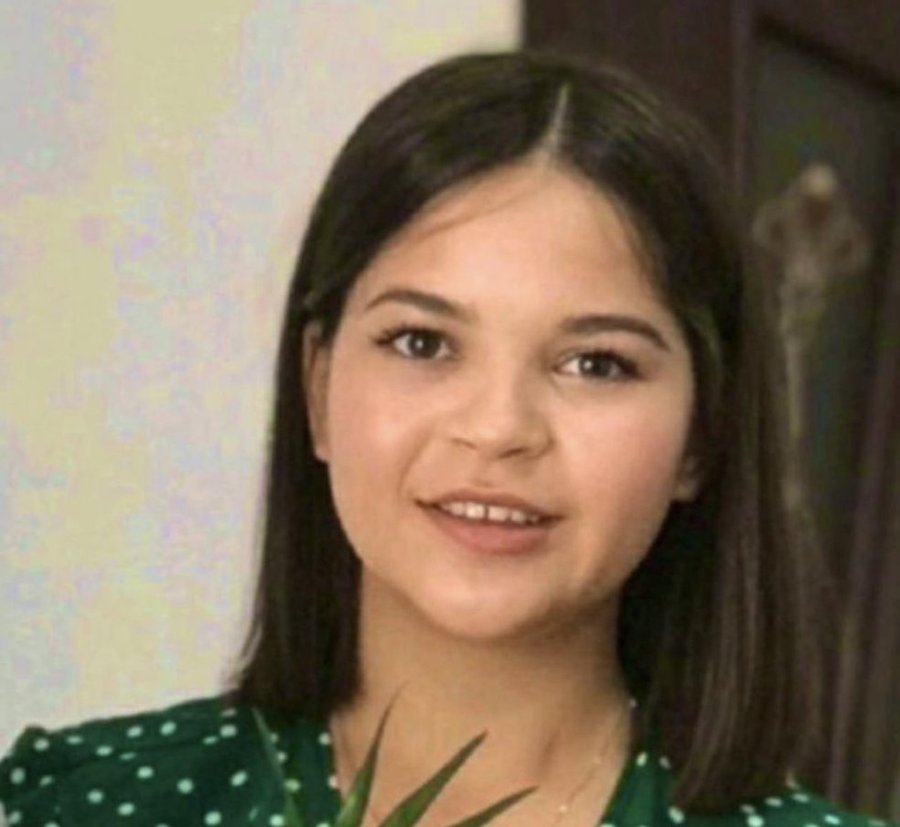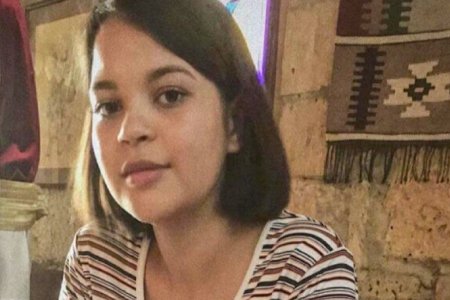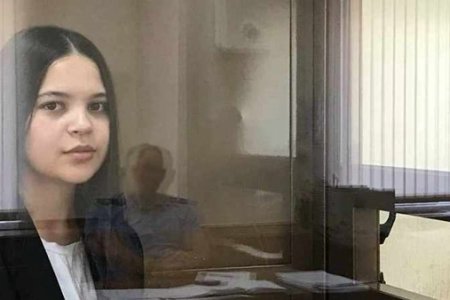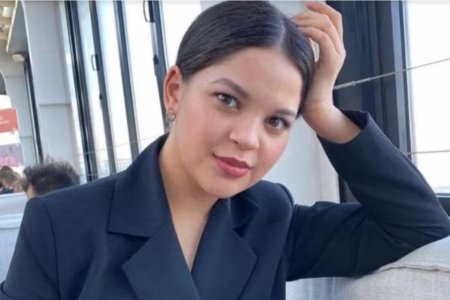
Russia’s FSB have concocted absurd ‘spying’ charges against 25-year-old Leniye Umerova, five months after she was first detained while travelling from Kyiv to occupied Crimea to visit her father, who is suffering from cancer. It was feared that the FSB were behind the young woman’s ongoing imprisonment, but that does not make the lawlessness around Leniye’s effective abduction any the less breath-taking.
Leniye Umerova was taken to Moscow on 4 May and was remanded in custody for two months by ‘judge’ Sergei Ryabtsev from the Lefortovo Court. The charge reported on the court’s website is of ‘state treason’ (Article 275 of Russia’s criminal code). Although this would appear to be ‘treason in the form of spying’, it is an extraordinary indictment given that the young woman is a Ukrainian citizen who could not commit treason against a foreign country. The fact that Russa is currently occupying Umerova’s native Crimea changes nothing. She herself left Crimea in 2015 and completed her school and then university education in mainland Ukraine, where she was living and working. It may well be because she left Crimea and has not taken Russian citizenship that she was targeted by the FSB at the beginning of December 2022.
The charge of ‘spying’ is equally nonsensical since Umerova has effectively been imprisoned ever since she sought to enter Russia from Georgia. If Russia had initiated criminal proceedings against the young woman before that time, there would have been no reason to make up pretexts for holding her under administrative arrest for five months.
It was already known that the FSB had removed Umerova’s documents, despite her imprisonment in North Ossetia being on administrative charges that had nothing to do with Russia’s security service. As the Crimean Human Rights Group points out, the FSB then effectively abducted Umerova herself, taking her from a SIZO or remand unit in Vladikavkaz to the Lefortovo Prison [SIZO] in Moscow. Her parents only learned that she had been taken to Moscow when they arrived at the Vladikavkaz SIZO and were told that she was no longer there.
The Russian FSB like charging Ukrainian citizens with ‘spying’, with one of the main reasons doubtless the level of secrecy that they can demand. The ‘trial’ is invariably held behind closed doors with even the defendant’s lawyer forced to sign a non-disclosure agreement, on threat of criminal prosecution if they divulge any information. In this case (as in most, if not all), the only ‘secret’ is the lack of any grounds at all for the charges.
Leniye’s father, Rezvan Umerov was diagnosed with cancer in November 2022, and needed serious treatment. His daughter, who was working as a marketing specialist in Kyiv, decided to come to occupied Crimea in order to be with her family at such a difficult time.
She had visited every year, without any problem, however that was before Russia’s full-scale invasion of Ukraine. This both complicated the journey to Crimea and sparked a huge number of politically-motivated abductions and prosecutions.
Leniye had travelled through Bulgaria and Romania into Georgia, from where she intended to cross into Russia, and then occupied Crimea. She was on the Tbilisi – Simferopol coach when she was detained during the night from 3-4 December 2022 at a checkpoint in Northern Ossetia on the Georgian-Russian border. She was told this was “for a further check and conversation”, with the Russian border guards (who are within FSB jurisdiction) taking her Ukrainian internal document, passport and her telephone. It was earlier reported that the Russians had found photos on the telephone of military technology, although these were not photos that she had taken and were widely available on the Internet.
She was told that the Russian border guards would speak with her the following day, and sent to the Sova Hotel outside the city. She was taken, by taxi, in that direction, but via a road which is off limits to foreigners, where the taxi was duly stopped by traffic police. This was clearly a set-up to enable the first administrative charge of “infringing the rules for crossing the Russian state border (Article 18.1 § 1 of Russia’s code of administrative offences). A local court found her guilty of this and fined her (the fairly small amount of) 2,000 roubles, as well as ordering her deportation. Since there is currently no mechanism for organizing such expulsion, she was simply sent to a temporary holding unit for foreign nationals.
The lawyer, whom her parents found, managed to get the deportation order revoked, with this meaning that there was no longer any requirement for her to be imprisoned in the temporary holding unit. The same court even noted that the young woman did not appear to present any danger to Russia.
This did not result in her release. Instead, she was seized by unidentified individuals as she left the unit. They put a bag over her head, forced her into a car and took her to a district in Vladikavkaz where they dumped her, just in time for a police car to turn up and demand that she come with them to the police station. She tried to find out why, with her question perhaps used as the pretext for accusing her of ‘disobeying the orders of an enforcement officer’. The Leninsky district court promptly ordered a 15-day term of administrative arrest, with a second, identical protocol over ‘disobedience’ drawn up almost immediately, supposedly because Leniye refused to give the officers her phone. A third 15-day sentence was imposed on 27 March, with Leniye taken to the temporary holding unit in Beslan.
On 9 April, a fourth ‘disobedience’ protocol was drawn up, with the 15-day term of administrative arrest this time imposed by ‘judge’ Veronika Kolobkova, from the Sovietsky district court in Vladikavkaz. The fifth administrative arrest was on 26 April, By then, it seemed clear that the FSB were fabricating some kind of charges against the young woman, as they did earlier against Ukrainian Oleksandr Marchenko
Leniye, who only wanted to be with her father while he fought a grave illness, now faces a sentence of up to 20 years. The fact that the charges are grotesque is never an impediment to such ‘trials’ resulting in Russian or Russian-controlled ‘courts’ providing the convictions and long sentences demanded of them.



